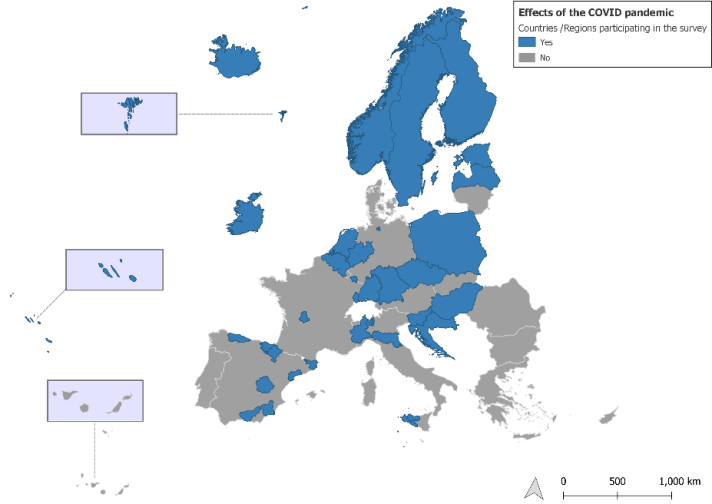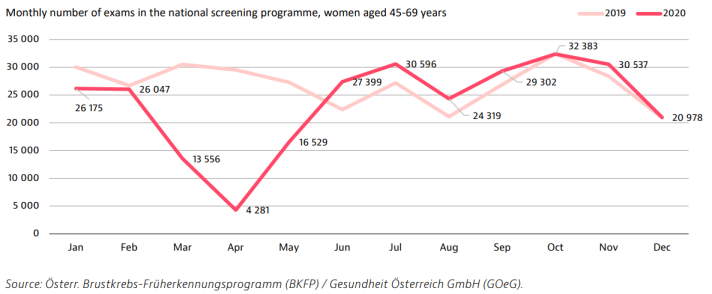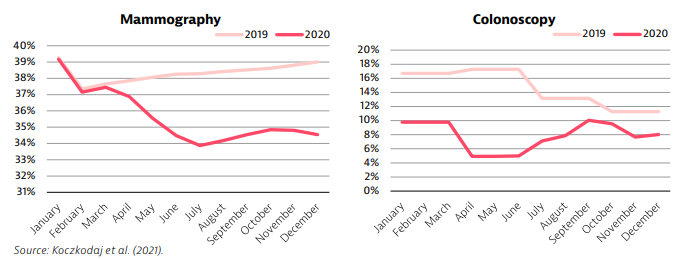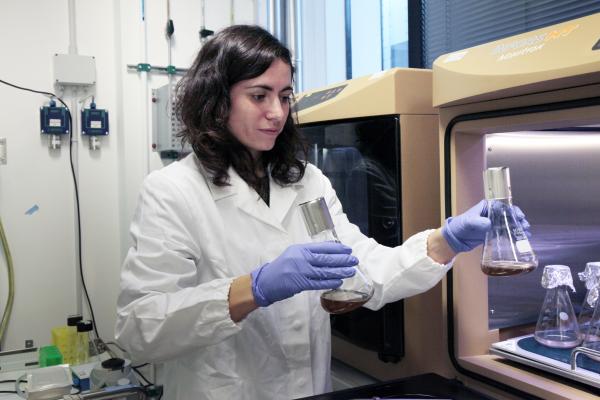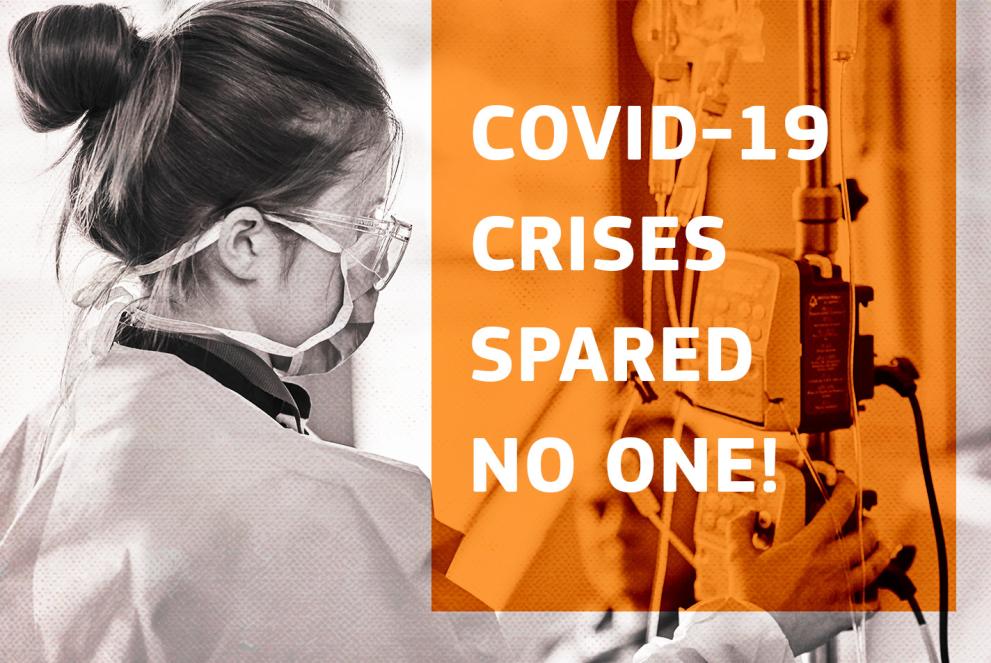
In March 2020, a new virus was turning everyone's lives upside down.
Disruptions manifested everywhere and affected everyone. From companies to schools, from seniors to children, the COVID-19 crisis spared no one.
The pandemic also dramatically disrupted the access to health care, particularly for vulnerable people. Among them, people suffering from cancer.
The JRC has conducted a survey among European cancer registries to understand how the first wave of the COVID-19 pandemic affected cancer screening, diagnoses and care from March to May 2020.
Cancer registries at national and regional levels constitute the European Network of Cancer Registries, which feeds the European Cancer Information System used for monitoring and projecting the burden of cancer in Europe.
Some key figures
Almost 90% of the respondents reported an interruption or slowdown of organised population-based cancer screening for breast, cervical and colorectal cancers.
In the European Union, at least four national cancer registries reported a significant decrease in cancer diagnosis, namely the Netherlands, Slovenia, Denmark and Belgium.
In Denmark, a 20% reduction in cancer diagnosis has been reported, while in Belgium the respondents reported a decrease of around 5000 cancer diagnoses in a 7-month period. This is roughly equivalent to the number of diagnoses occurring in one month under normal conditions.
Disruptions also happened in treatments. Surgery was the most affected, disrupted by 51% according to registries’ data, followed by chemotherapy by 43%, immunotherapy by 44% and radiotherapy by 40%.
COVID-19 highlights from Country Cancer Profiles
Insights from the 29 Country Cancer Profiles published as part of the European Cancer Inequalities Registry, also confirm similar trends with regards to the impact of the pandemic on cancer prevention and care across the EU 27, Norway and Iceland.
In almost all countries the volume of cancer treatments and the uptake of screening services declined substantially, especially during the first lockdown at the beginning of the pandemic. This led to delays in diagnosis and treatment of cancer in early 2020 in the vast majority of countries.
In some countries services rebounded swiftly so that the volume provided over the year declined less significantly compared to prior years than expected or was recuperated in 2021 so that the backlog created was cleared. In other countries, however, treatment volumes and screening rates remained low over the whole course of 2020 or did not recover completely, leading to a worrying backlog in diagnosis and treatment. In other countries the picture is mixed with early detection rates returning to pre-pandemic levels for some cancer sites, but not for others.
What can we expect now?
All these disruptions are predicted to lead to:
- a lower number of reported cancer incident cases in 2020;
- increases in the stage at diagnosis;
- an unquestionably negative impact on survival.
A careful analysis of the data available will be necessary for proper interpretation of temporal and geographical variations of the 2020 cancer burden indicators.
Recommendations for future pandemics
How can we be better prepared for a next pandemic? Cancer registries data could contribute to evaluating how the COVID-19 pandemic has affected changes in diagnosis and treatment modification at the population level, and thus help formulate recommendations on how to better manage cancer treatments in future emergencies.
Some EU countries have already started to implement measures to minimise the impact of COVID-19 on cancer care, by for example giving priority to high-risk cancer patients, implementing real-time video consultations, targeted screening awareness campaigns, and taking measures to reduce backlogs.
On the other hand, the European Society for Medical Oncology published recommendations on how to better manage cancer treatments in future emergencies. These include the promotion of telehealth and digital health in oncology as a tool for real-time video consultations for primary care triage and interventions such as counselling, medication prescribing and management, and management of long-term treatment.
Details
- Publication date
- 28 February 2023
- Author
- Joint Research Centre
- JRC portfolios

